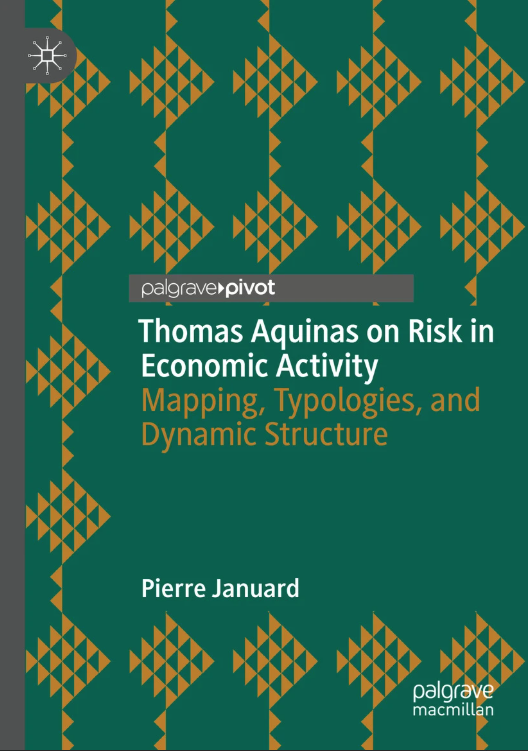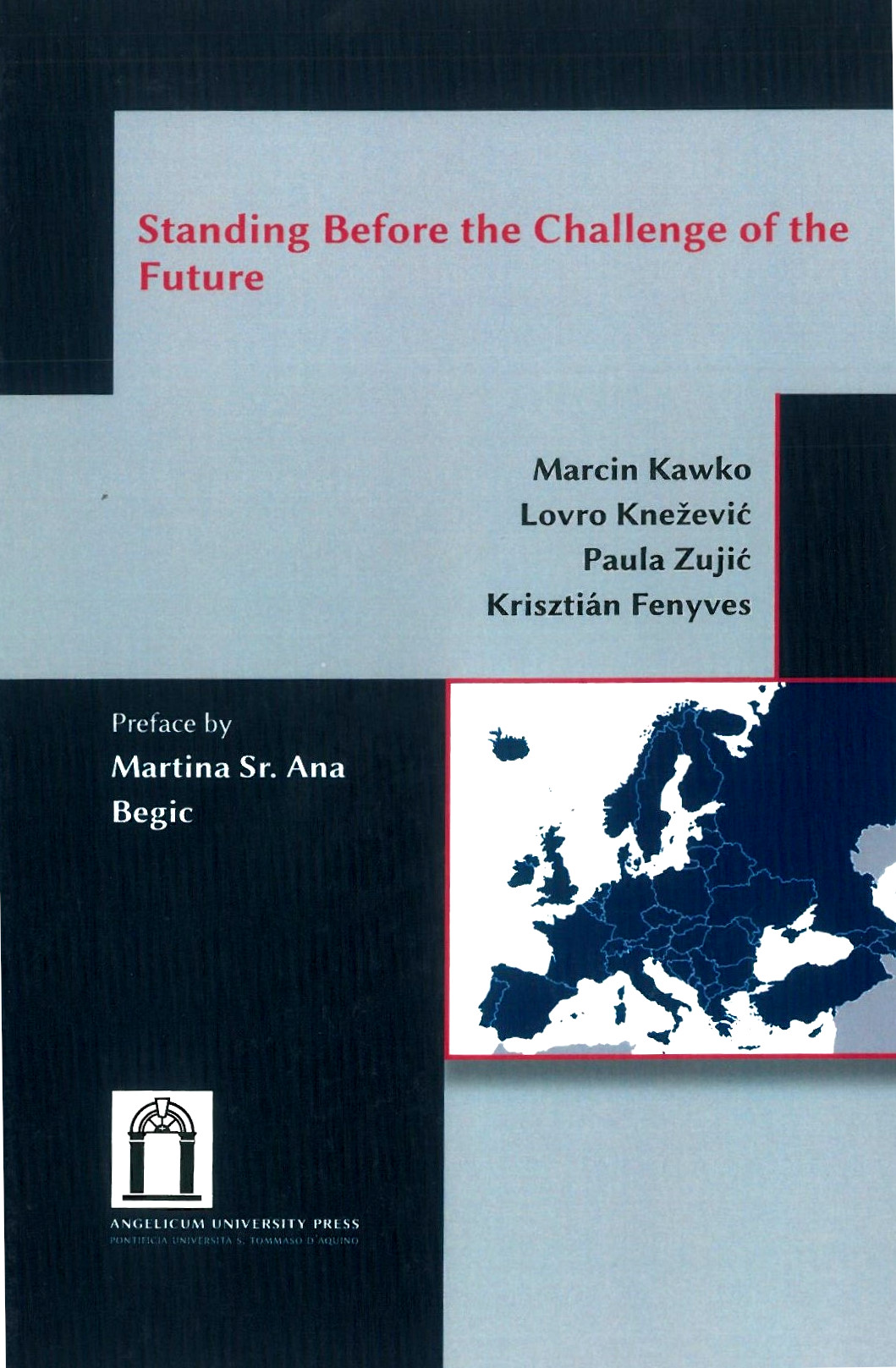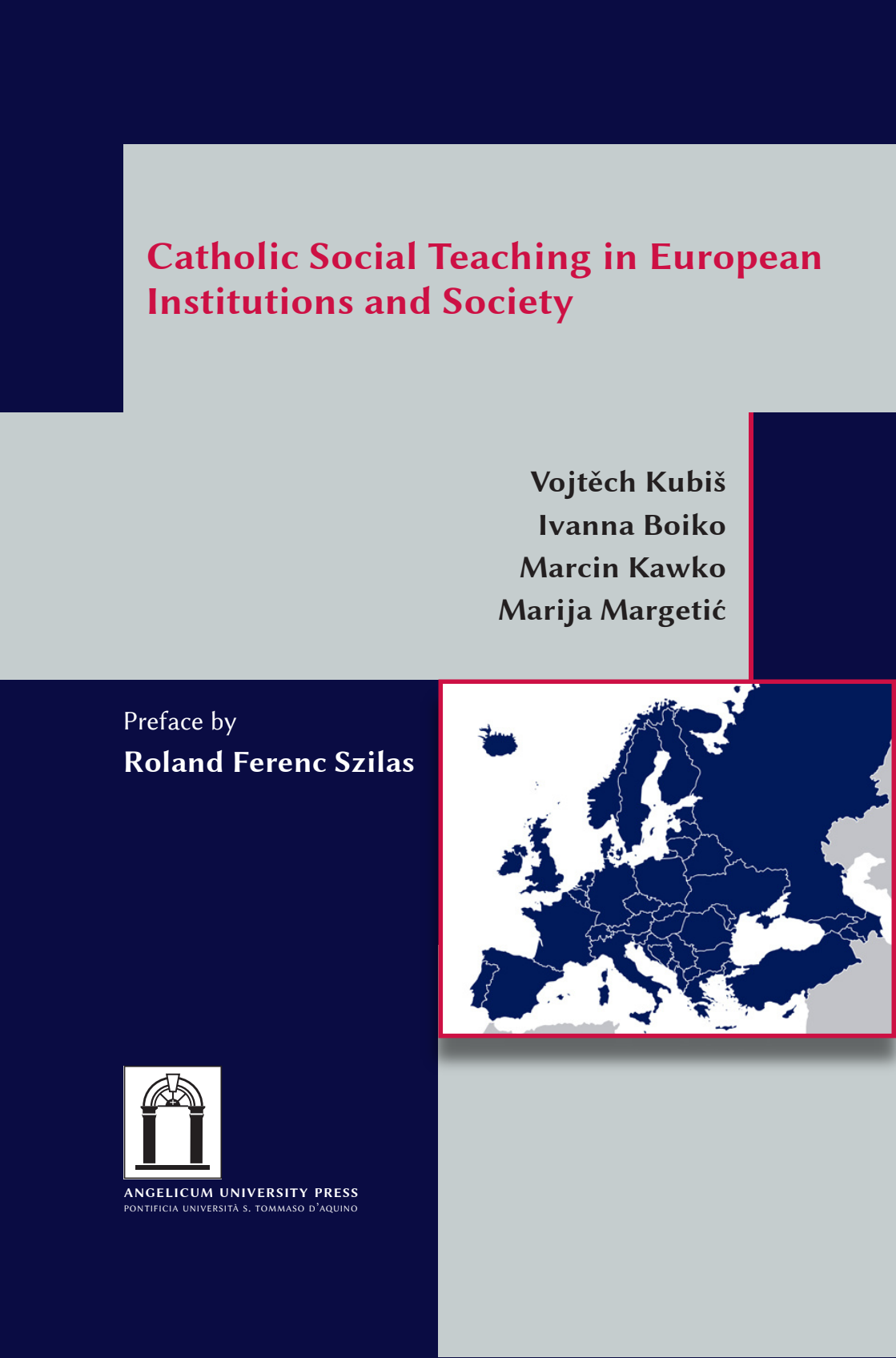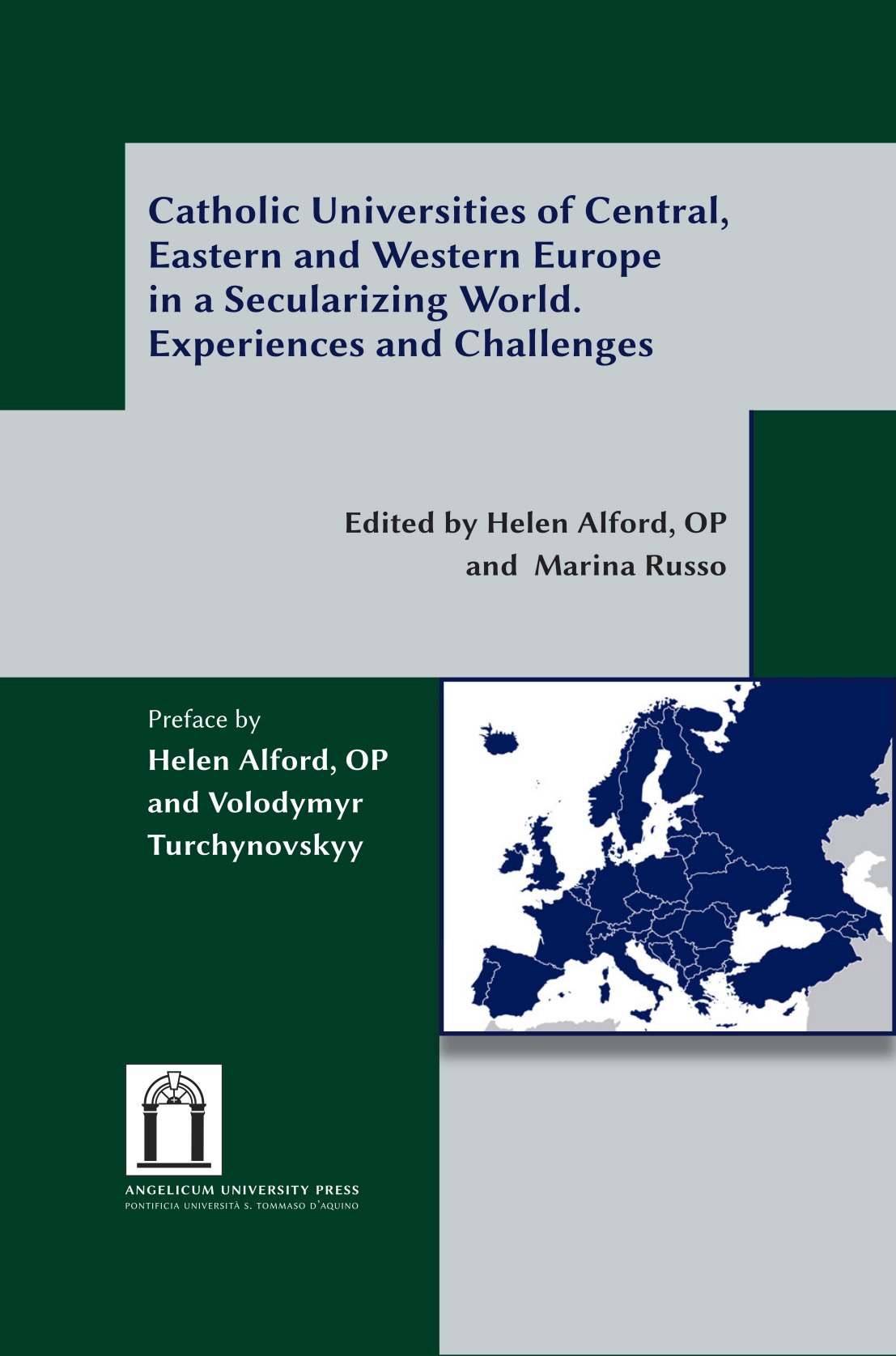 “Hope, amazement, mercy” – these three words characterise the attitude of the Tempora-project, which initiated the publication of the book Globalisation and Human Dignity. The goal of the project is to stimulate Catholic contributions to the public debate on globalisation, and this book is intended as a further contribution to the same. It follows on from the publication of some Dutch contributions to the Jubilee of Universities in Rome, in the book Humanity in a Globalising World.
“Hope, amazement, mercy” – these three words characterise the attitude of the Tempora-project, which initiated the publication of the book Globalisation and Human Dignity. The goal of the project is to stimulate Catholic contributions to the public debate on globalisation, and this book is intended as a further contribution to the same. It follows on from the publication of some Dutch contributions to the Jubilee of Universities in Rome, in the book Humanity in a Globalising World.
During the 75th anniversary of Tilburg University in March 2003, a workshop on globalisation and human dignity within a conference on “sustainable ties in the information society” was organized. Here, in a forum of Catholic academics, the presentation of the central essay of this publication A Better Life for All!, written by Dr. Marjolijn Drenth von Februar, took place. During the seminar, comments on the text were made by Professor Dr. Ernst Hirsch Ballin, Dignity in Difference, Dr. Onno Ruding, Globalisation and the Realities of Poverty, and by Professor Dr. Johan Verstraeten, Globalisation and the Dignity of the Poor. The central essay and these comments became parts of the book Globalisation and Human Dignity.
The preface, written by Dr. Martinus P.M. Muskens, Bishop of Breda, is followed by an inspirational introduction The Challenge of Globalisation given us by the editors of the publication Win van de Donk and Richard Steenvoorde. They begin by describing the daily miracle dedicated to human dignity that happens in the Trinity Chapel of Salisbury Cathedral. At this point we can guess that the picture chosen for the cover of the book represents the prisoners of conscience for whom prayers are offered every morning in this chapel. It is a very thoughtful choice. Actually, after reading such a book as this, that analyses the concept of human dignity in a globalised world, one realises that this picture offers a very comprehensive definition of human dignity. Namely, as Johan Verstraeten points out in his comment, conscience is the space wherein the human person finds the law written in his heart by God and it is in obeying this law that an individual discovers his or her ‘very dignity’.
In the introduction we also read how Jacques Maritain, one of the influential thinkers behind the idea of the Universal Declaration of Human Rights, recalls in his book Man and the State that during the negotiations many states were able to support the preamble of the declaration, where recognition of intrinsic human dignity is made, as long as they were not asked ‘why’. Hence, the debate on the ‘why’ behind the need to protect human dignity was kept out of the realm of international law and politics. “If there is a short message of [the] book, this message would be: we cannot skip the ‘why’ any longer, especially in an age where globalisation is not just a concept, but a reality” (p. 10). Later in the book we find a similar conclusion, drawn by Marjolijn Drenth von Februar: “Everyone is concerned, in their own way, about the well-being and moral identity of global citizens. It is as if one cannot speak about globalisation except in ethical terms” (p. 70).
Before arriving at this conclusion, however, the author of the central essay A Better Life for All! provides us with a very wide overview of the concept of human dignity. She deals three of the different meanings for it: dignity in the sense of value, dignity in the sense of right, and dignity in the sense of an ontological leap in the context of a globalised world. It is fascinating that she does not a priori reject any of these senses of human dignity, but discovers the usefulness of each of them, even of the materialistic approach to human dignity. Let us take a look at these three ways to interpret human dignity.
Human dignity as a material value focuses on our physical state. This is a scientific, materialistic and functional view of human dignity. According to this approach, we do not all possess the same dignity. “At most we possess dignity if we are of some value, if our lives are worth the trouble, or if our bodies are worth the trouble of saving” (p. 22). It is useful to note that this view is very popular in today’s discussions about life and death, abortion and euthanasia, where much attention seems to be focused on material value. Never-theless, as the author argues in the chapter “In favor of material man: the poverty line”, there are certain advantages to this materialism that applies the economic and biological approaches to human dignity. “Because if we measure human dignity by the value of man, in terms of his material func-tioning, it becomes possible to determine that human dignity fairly accurately. And such accurate information on the dimensions of human dignity undoubtedly has advantages for policy-making” (p. 34).
Marjolijn Drenth von Februar cites Houellebecq who attributed the victory of material man to the fundamental agnosticism of the French Republic. However, this victory, according to the author, does not necessarily regard dignity as a material value, or as the ability to enjoy and to suffer. “Particularly in the agnostic tradition of the French Republic, man’s dignity has also become associated with his political life, his position in society” (p. 23). At this point we encounter the understanding of human dignity as a right. Accord-ing to this view, we acquire dignity, and with it, the right to protection, on the basis of our vulnerability. Dignity is given to us purely on the basis of our existence, and this means that everyone is equal in dignity. Nevertheless, the author rightly notes: “Yet the human rights approach, with its attribution to dignity, calls a formal equality into being, by which it seems to give too little thought to the very real inequality among people” (p. 25). Further in the essay it is demonstrated to us that global equality is hardly possible. It is so because it is impossible to allow the entire world population to grow and grow until it reaches the level of the Western citizen. “In order to offer everyone the sort of life that the Western citizen leads, one planet Earth wouldn’t be nearly enough: for the globalisation of the Western footprint, we would need no fewer that 3.4 planets!” (pp. 56-57). At the same time, the economy of the West cannot be allowed to shrink because this would seriously impair the global economy. According to James Ogilvy, who is also presented in the book, the Western citizen must not only live better, but also produce and consume better, for it is his materialism that makes the economy sing. That is why a rigorous view of dignity-as-a-right has great appeal for him. Marjolijn Drenth von Februar concludes the chapter about dignity as a right with an emphasis on the idea that in poor countries, the human rights’ approach must be supplemented with a more economic approach to dignity.
The approach of human dignity as an ontological leap recognizes man as a mysterious and complex being, one who cannot be reduced to the sum of a few simple qualities. In the essay A Better Life for All! we are introduced to Francis Fuku-yama’s ideas about human dignity. Drenth von Februar writes that, in an effort to abolish the distinction between the two forms of human dignity discussed above, Fukuyama recently made a plea for a return to the Christian view, according to which “dignity is an essential part of each of us; it is not dependent on circumstances, nor it is attributed to us – it is at the core of our humanity” (p. 25). Marjolijn Drenth von Februar gives much attention to Fukuyama’s idea of ‘Factor X’, that is, the factor uniting all people and remaining behind after we have gone beyond all the accidental or inessential qualities of a person. In reality, this factor is very complex and we are not able to isolate it simply. The view of the social encyclicals of the last century is similar and actually served Fukuyama as a point of reference. They also sought the meaning of human dignity in a description that would be as non-reductionist as possible, and this approach found the basis of human dignity “in the possession of a spiritual soul: our value is transcendental and God-given. A person’s dignity cannot be reduced to a value, or to community feeling, or identity, or any other of these qualities…We derive our dignity from the Creation.” (pp. 59-60).
Finally, Marjolijn Drenth von Februar acknowledges that all three forms of dignity are open to criticism; “the third form of dignity, too, is disputable – if only the fact that the ontological claim is disputable” (p. 27). Nevertheless, according to the author, despite the objections, all three definitions of dignity have their advantages. “They each shed their own light on globalization, and reveal, in very different ways, the sort of problems with which man is faced in his growing and shrinking world” (ibid.)
The central essay is followed by three comments that render the book an excellent example of how interdisciplinary dialogue can enrich the discussion: the first comment is written by a professor of international law; the second is by an expert in finance, while the third is written by a professor of ethics. Let us pass quickly through the main points of agreement and disagreement between these comments and the central essay.
Ernst Hirsch Ballin in his Dignity in Difference agrees with Marjolijn Drenth von Februar’s understanding of the third sense of human dignity as an effort to do away with the distinction between dignity as a value and dignity as a right and adds that the “view on mankind, rooted in the Judaeo-Christian belief in creation but not limited nor intended to be limited to believers, sets one’s dignity free from any value-based conditionality” (p. 73). Ernst Hirsch Ballin complements the central essay of the book with a very important distinction between the history transcending character of human dignity and the historical contingent manifestations of the value-rights dynamics.
The next comment entitled Globalisation and the Realities of Poverty and written by Onno Ruding is of particular interest because it provides a deeper analysis of the reality of poverty. This new aspect leads the author to conclusions that are, in part, different from the essay of Marjolijn Drenth von Februar. First of all Onno Ruding explains the link between globalisation and poverty. It appears that globalisation is only one of five main reasons of the poverty in many countries of the world. First, there are countries that have deliberately not joined the wave of globalisation and thus have lost all the benefits of it. Then there are countries who are in trouble because of awfully bad domestic policies. “A third category of developing or poor countries finds itself in dreadful conditions as the result of war and its dismal economic and humanitarian consequences” (p. 84). In similar condition we find the fourth category of countries and areas which suffer from poverty, famine and death caused by developments beyond human control: drought, floods, fire. In the fifth place we find countries that suffer because globalisation has had a negative impact related to worsening of the terms of trade or to loss of production.
The last comment Globalisation and the Dignity of the Poor, written by Johan Verstraeten, is philosophical, theological and sometimes even mystical. That is why it is very different from the rest of the essays in the book. The author distinguishes four meanings of the concept of human dignity: relative, moral, philosophical and theological. Another innovative contribution of Johan Verstraeten is the idea of a communitarian rein-terpretation of human rights. At this point he recalls the pastoral letter of the North American Conference of Bishops Economic Justice for All where rights are defined as “the minimum conditions for life in community” (p. 102). Ultimately this commentator introduces the concept of human dignity as a process, based on the mystical theology of Pierre Teilhard de Chardin. These are the pages that are the most difficult to understand in the book; the idea of dignity as a process is not explored as much as it could be, and the contributions to the analysis of it could continue the discussion. “Human dignity and globalization are not necessarily opposed to each other, since globalization itself can be interpreted as a process of humanization” (p. 109).
By the book Globalisation and Human Dignity. Sources and Challenges in Catholic Social Thought we are easily inspired to further dis-cussion and to deeper analysis of the concept of human dignity in a globalised world and the effects of globalisation. Despite the fact that the book has so many contributors and thus different styles of writing, it seems rather integral, surely reflecting the discussion of the Catholic thinkers from various disciplines that took place during the workshop at Tilburg University. The reader that expects to find a coherent and deep analysis of human dignity or globalisation will probably be disappointed. This is only a collection of essays. However the book serves as an optimal point of departure for starting the study and thus continuing discussion about one particular aspect chosen from many inspirational ideas of the book. It is certain that with this marvellous publication the goal of the Tempora-project to stimulate Catholic contributions to the public debate has been achieved.
globalisation. Despite the fact that the book has so many contributors and thus different styles of writing, it seems rather integral, surely reflecting the discussion of the Catholic thinkers from various disciplines that took place during the workshop at Tilburg University. The reader that expects to find a coherent and deep analysis of human dignity or globalisation will probably be disappointed. This is only a collection of essays. However the book serves as an optimal point of departure for starting the study and thus continuing discussion about one particular aspect chosen from many inspirational ideas of the book. It is certain that with this marvellous publication the goal of the Tempora-project to stimulate Catholic contributions to the public debate has been achieved.
 IT
IT  EN
EN 
















